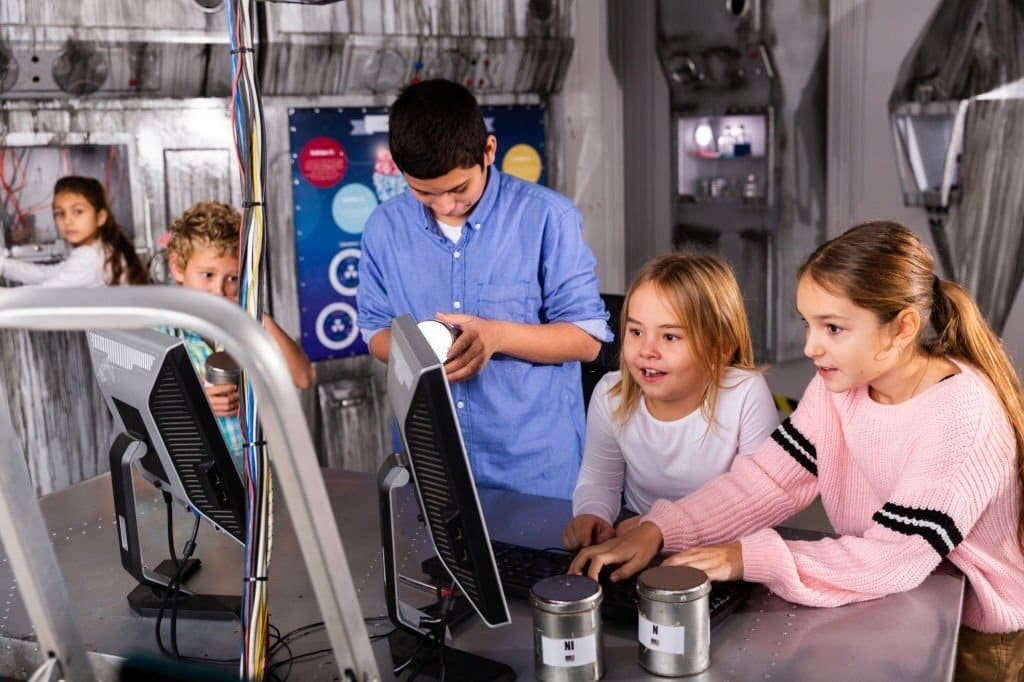As much as entertainment is a vital aspect of human life, there is no denying that too much of it has adverse effects on the human mind, especially on younger children. With unlimited access to all sorts of content through mobile devices and the internet, kids these days are much more vulnerable to get exposed to the harmful sides of the media.
The ease of accessibility of media entertainment, combined with the constantly shrinking opportunities for children to go outside and socialize in parks, schools, or playgrounds, has contributed towards curating a depressing reality. Children these days are constantly getting out of touch with the world, for no fault of their own.
So, where do escape room activities come into such a complex problem? Simple; escape rooms combine the good-ol’ puzzle-solving fun with the new age technology to provide kids with enriching experiences. Escape brands such as Breakout Escape Rooms take extra care in ensuring that their games are not just fun but have additional perks to offer to the young minds.
Let’s take a look at the 7 ways in which an escape room activity can help your child’s mental growth:
1. Improves Their Creativity
Kids see the world differently than adults. At any given moment, their imagination and curiosity create an alternative perspective for them, which grown-ups usually have lost touch with. So, in an escape room full of puzzles and riddles, kids can freely experiment with their thoughts and learn to engage with their creative minds to find solutions.
2. Encourages Problem-Solving Skills
In the same strain as the previous point, escape rooms put kids into situations where they are required to come up with ways to get out of tricky scenarios. These scenarios replicate real-world challenges that they might face in the near future. In a simulated environment like this, they get the chance of hands-on learning by harnessing practical thinking abilities that eventually work as a catalyst for problem-solving skills.
3. Time management
Since escape rooms are time-regulated, players have to constantly be aware of that factor. In real life, a lot of kids are naturally good at puzzle solving or decoding clues. But the skill that most children need to acquire through life is the awareness of time and its limitations. Escape rooms help them train their senses to gauge time and finish tasks within a given period. With enough practice, your kids could accurately measure which task in an escape room demands how much time and chalk out their next steps accordingly.
4. Eye for details
The beauty of escape rooms lies in their finest details. What might appear as a straightforward prop in the room can turn out to be the biggest hint that can decide your victory. So, it is essential to observe every minuscule detail while playing the game. Such an experience subconsciously trains kids to develop the habit of close observation and develop an eye for details.
5. Teamwork mindset
Escape rooms work wonders to create a team out of a bunch of individual players. It has the power to even turn strangers into acquaintances. So, you can only imagine what it can do for your family or your kids’ friend group. Escape room games push players to work together towards a shared goal by harnessing individual skills. This demonstrates to kids how to functionally work as a team and not get caught up in the egotistic rat race. This, in particular, is a very important skill to acquire, especially since in a classroom environment, it is rare to learn this aptitude.
6. Cognitive pleasure
Escape rooms are as fun as any other video game or cartoon show, if not more. Playing in an escape room releases pleasure hormones such as dopamine and adrenaline into your body, allowing you to enjoy the experience and get satisfaction from it. But since it is a time-regulated activity, there is no risk of kids getting addicted to such a recreation. This is a much healthier alternative that entertains kids all the same, without the harmful side effects of media content.
7. Memory Retention
In escape room games, memorizing certain points and patterns is essential to use them later. This particular aspect helps your kids to improve and increase their memory. Since the brain is still in a developing stage for a kid, with the right amount of repetition, the horizons of their memory can expand gradually and adapt to it.
Conclusion
The list could go on longer, but these are the fundamental benefits of escape rooms, especially for kids. They create safe environments where children can get practical lessons on important life skills. But since all the learning takes place through fun activities, kids never feel any burden and instead internalize these lessons to the point where it becomes second nature.
Because of the undeniably immersive entertainment of escape rooms, kids also willingly want to go back to try them again. And since every escape company has age-appropriate games to opt for, finding an experience that will suit your kid’s preferences would never be a problem either.







